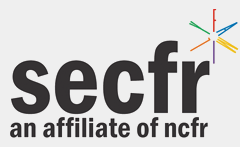What Human Services and Helping Professionals Need to Know about Employee Retention and Work-Life Balance
Proposal Focus
Practice
Presentation Type
Presentation
Abstract
The Work-Family Enrichment theory highlights the interrelatedness of professional and personal life and notes that positive work and family experiences can have additive effects on individuals and their families (Greenhaus & Powell, 2006). Through this lens, work satisfaction has implications for family and individual wellbeing. When workplace organizations implement practices that encourage employee retention, they systematically create an environment that fosters employee satisfaction (Griffin et al., 2010; Wells, 2015). Retention, and the relationships between work, family, and individual wellbeing, are particularly salient for certain types of work that are connected to human development and family science because many of these careers are high-demand/lower-pay “labors of love” (e.g., child care providers, social work, child-life specialists). Equipping current and future helping/human service professionals with an understanding of effective retention practices will help them identify satisfying work opportunities for themselves and enhance their ability to advocate for and implement retention practices across the field.
Keywords
helping professionals, human services, families professional development, workplace culture, work satisfaction, work-life balance, employee retention
Location
Yorkshire
Start Date
4-4-2020 9:00 AM
End Date
4-4-2020 9:50 AM
What Human Services and Helping Professionals Need to Know about Employee Retention and Work-Life Balance
Yorkshire
The Work-Family Enrichment theory highlights the interrelatedness of professional and personal life and notes that positive work and family experiences can have additive effects on individuals and their families (Greenhaus & Powell, 2006). Through this lens, work satisfaction has implications for family and individual wellbeing. When workplace organizations implement practices that encourage employee retention, they systematically create an environment that fosters employee satisfaction (Griffin et al., 2010; Wells, 2015). Retention, and the relationships between work, family, and individual wellbeing, are particularly salient for certain types of work that are connected to human development and family science because many of these careers are high-demand/lower-pay “labors of love” (e.g., child care providers, social work, child-life specialists). Equipping current and future helping/human service professionals with an understanding of effective retention practices will help them identify satisfying work opportunities for themselves and enhance their ability to advocate for and implement retention practices across the field.
![Southeastern Council on Family Relations Conference [2018-2020]](/assets/md5images/a0d3661d5139dc9b769a57be6f085156.png)

